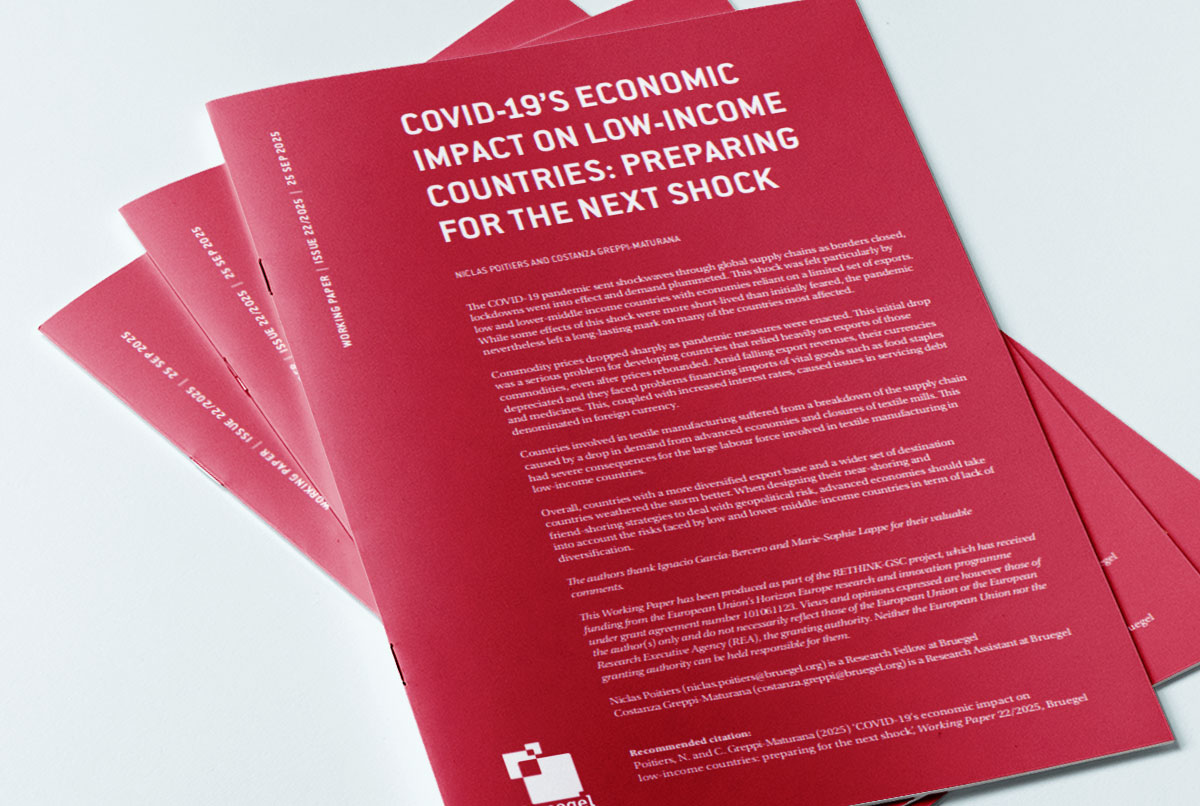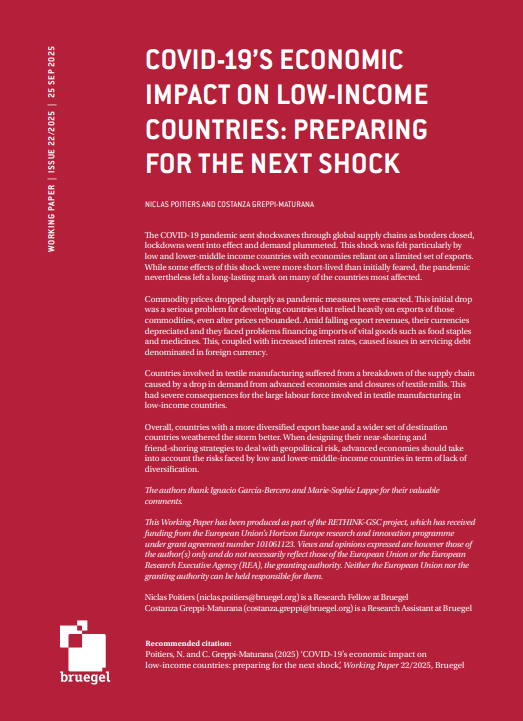AUTHOR
Niclas Poitiers and Constanza Greppi-Maturana
Abstract
The COVID-19 pandemic sent shockwaves through global supply chains as borders closed, lockdowns went into effect and demand plummeted. This shock was felt particularly by low and lower-middle income countries with economies reliant on a limited set of exports. While some effects of this shock were more short-lived than initially feared, the pandemic nevertheless left a long-lasting mark on many of the countries most affected. Commodity prices dropped sharply as pandemic measures were enacted. This initial drop was a serious problem for developing countries that relied heavily on exports of those commodities, even after prices rebounded. Amid falling export revenues, their currencies depreciated, and they faced problems financing imports of vital goods such as food staples and medicines. This, coupled with increased interest rates, caused issues in servicing debt denominated in foreign currency. Countries involved in textile manufacturing suffered from a breakdown of the supply chain caused by a drop in demand from advanced economies and closures of textile mills. This had severe consequences for the large labour force involved in textile manufacturing in low-income countries. Overall, countries with a more diversified export base and a wider set of destination countries weathered the storm better. When designing their near-shoring and friend-shoring strategies to deal with geopolitical risk, advanced economies should take into account the risks faced by low and lower-middle-income countries in term of lack of diversification.
Keywords: COVID-19, Low-income countries, Shocks
Publication Date
September 2025
Working papers present the results of ongoing research and make current research results freely available. Due to their preliminary nature, working papers are subject to ongoing peer review. In this context, updated paper versions may be made available at irregular intervals. It may also be useful to contact the author(s) directly about the results before referring to or citing a paper.





